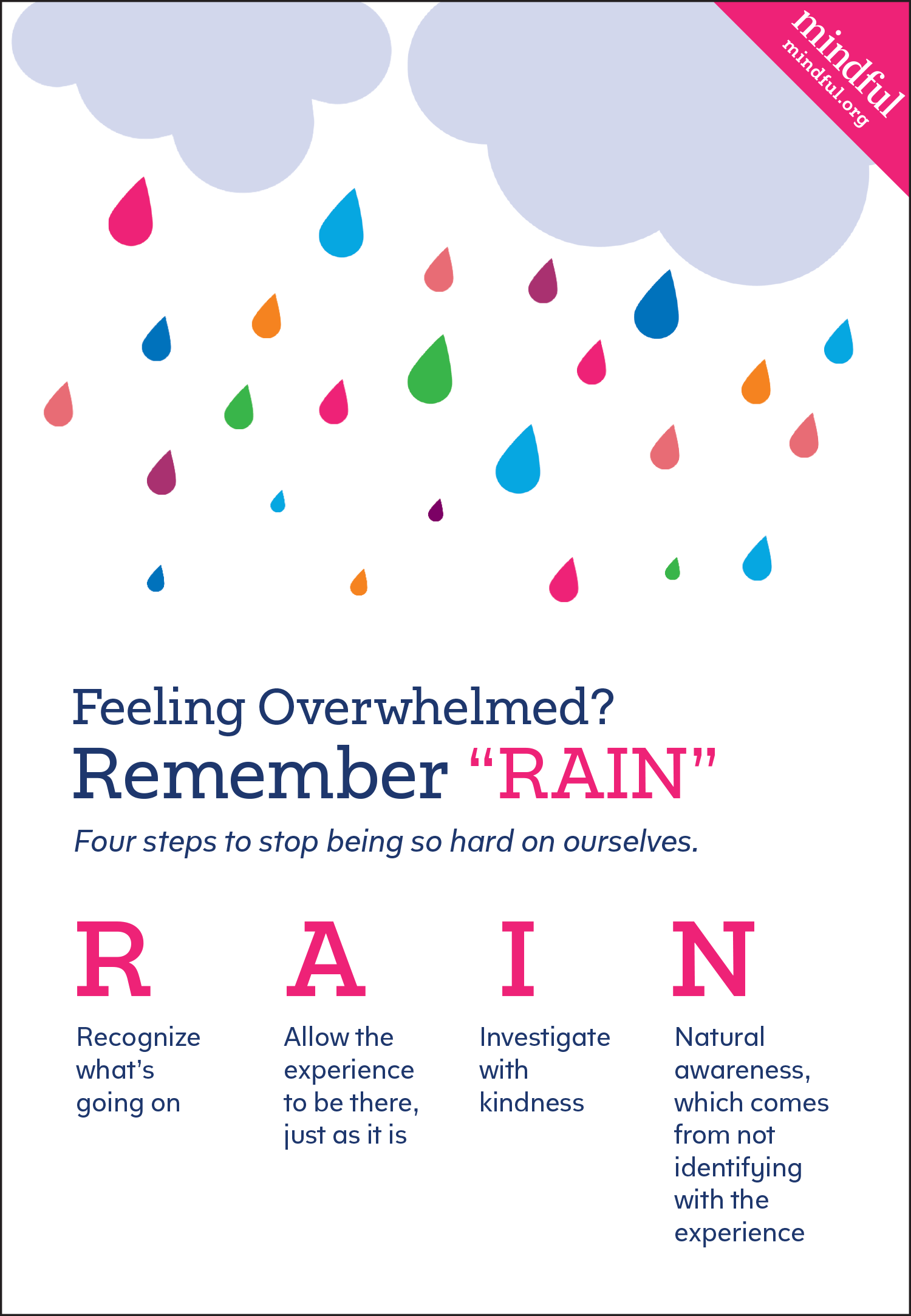When I was in college, I went off to the mountains for a weekend of hiking with an older, wiser friend of twenty-two. After setting up our tent, we sat by a stream, watching the water swirl around rocks, talking about our lives. At one point she described how she was learning to be “her own best friend.” A wave of sadness came over me, and I broke down sobbing. I was the furthest thing from my own best friend. I was continually harassed by an inner judge who was merciless, nit-picking, demanding, always on the job. My guiding assumption was, “Something is fundamentally wrong with me,” as I struggled to control and fix what felt like a basically flawed self.
Over the last several decades, through my work with tens of thousands of clients and meditation students, I’ve come to see the pain of perceived deficiency as epidemic. It’s like we’re in a trance that causes us to see ourselves as unworthy. Yet, I have seen in my own life, and with countless others, that we can awaken from this trance through practicing mindfulness and self-compassion. We can come to trust the goodness and purity of our hearts.
Summary
- Purpose: This guided meditation uses the sound and imagery of rain to help you settle into a mindful, present state.
- Core Practice: Tara Brach invites you to notice and embrace the natural rhythms of rain as a metaphor for releasing tension and letting go. You’re encouraged to allow thoughts and emotions to drift by, much like raindrops, cultivating a gentle awareness.
- How It Works:
- Listen to or imagine the soothing sound of rain.
- Focus your attention on the sensory experience, noticing both physical sensations and mental patterns.
- Embrace a stance of acceptance and compassion toward yourself and your experience.
- Benefits: Helps reduce stress, deepens your sense of calm, and nurtures a compassionate connection to the present moment.
The RAIN Meditation
In order to flower, self-compassion depends on honest, direct contact with our own vulnerability. Compassion fully blossoms when we actively offer care to ourselves. To help people address feelings of insecurity and unworthiness, I often introduce mindfulness and compassion through a meditation I call the RAIN of Self-Compassion. The acronym RAIN, first coined by Michele McDonald, is an easy-to-remember tool for practicing mindfulness. The RAIN meditation has four steps:
- Recognize what is going on
- Allow the experience to be there, just as it is
- Investigate with kindness
- Natural awareness, which comes from not identifying with the experience.

Practice the RAIN Meditation with Tara Brach:
Practice the RAIN Meditation with Tara Brach
You can take your time and explore the RAIN meditation as a stand-alone practice or move through the steps in a more abbreviated way whenever challenging emotions arise.
R—Recognize What’s Going On
Recognizing means consciously acknowledging, in any given moment, the thoughts, feelings, and behaviors that are affecting us. Like awakening from a dream, the first step out of the trance of unworthiness is simply to recognize that we are stuck, subject to painfully constricting beliefs, emotions, and physical sensations. Common signs of the trance include a critical inner voice, feelings of shame or fear, the squeeze of anxiety or the weight of depression in the body.
Different people respond to the sense of unworthiness in different ways. Some might stay busy, trying to prove themselves valuable; others, fearful of failure, may become discouraged or even paralyzed. Still others may resort to addictive behaviors to avoid facing their shame and fear. Any of these strategies can lead to either defensive or aggressive behavior with others, or unhealthy attachment.
Some of us are at war with ourselves for decades, never realizing how our self-judgment and self-aversion keep us from finding genuine intimacy with others or enjoying our lives. One palliative caregiver reports that a key regret of the dying is not having been true to themselves. Rather than listening to and trusting our inner life, most of us try to live according to the expectations of others, which we internalize. When we inevitably fall short of the mark, we condemn ourselves.
Though it may sound depressing or overwhelming, learning to recognize that we are at war with ourselves is quite empowering. One meditation student described the trance of unworthiness as “…the invisible and toxic gas I am always breathing.” As he became increasingly mindful of his incessant self-judgment and feelings of inadequacy, his aspiration to free himself from his painful inner prison grew.
A—Allowing: Taking a Life-Giving Pause
Allowing means letting the thoughts, emotions, feelings, or sensations we have recognized simply be there. Typically when we have an unpleasant experience, we react in one of three ways: by piling on the judgment; by numbing ourselves to our feelings; or by focusing our attention elsewhere. For example, we might have the sinking, shameful feeling of having been too harsh in correcting our child. But rather than allowing that feeling, we might blame our partner for not doing his or her part, worry about something completely different, or decide it’s time for a nap. We’re resisting the rawness and unpleasantness of the feeling by withdrawing from the present moment.
We allow by simply pausing with the intention to relax our resistance and let the experience be just as it is. Allowing our thoughts, emotions, or bodily sensations simply to be doesn’t mean we agree with our conviction that we’re unworthy. Rather, we honestly acknowledge the presence of our judgment, as well as the painful feelings underneath. Many students I work with support their resolve to let it be by silently offering an encouraging word or phrase to themselves. For instance, you might feel the grip of fear and mentally whisper yes in order to acknowledge and accept the reality of your experience in this moment.
Allowing creates a space that enables us to see more deeply into our own being, which, in turn, awakens our caring and helps us make wiser choices in life.
Victor Frankel writes, “Between the stimulus and the response there is a space, and in this space lies our power and our freedom.” Allowing creates a space that enables us to see more deeply into our own being, which, in turn, awakens our caring and helps us make wiser choices in life. For one student, the space of allowing gave her more freedom in the face of urges to binge eat. In the past, whenever she felt restless or anxious at night, she’d start thinking of her favorite food—trail mix—then mindlessly consume a half pound of it before going to bed, disgusted with herself. Learning to recognize the cues and taking a pause interrupted the pattern. While pausing, she would allow herself to feel the tension in her body, her racing heart, the craving. Soon, she began to contact a poignant sense of loneliness buried beneath her anxiety. She found that if she could stay with the loneliness and be gentle with herself, the craving passed.
I—Investigating with Kindness
Investigating means calling on our natural curiosity—the desire to know truth—and directing a more focused attention to our present experience. Simply pausing to ask, what is happening inside me?, can initiate recognition, but investigation adds a more active and pointed kind of inquiry. You might ask yourself: What most wants attention? How am I experiencing this in my body? Or What am I believing? What does this feeling want from me? You might notice hollowness or shakiness, then discover a sense of unworthiness and shame masked by those feelings. Unless you bring them into awareness, your unconscious beliefs and emotions will control your experience and perpetuate your identification with a limited, deficient self.
Poet Dorothy Hunt says that we need a “…heartspace where everything that is, is welcome.” Without such an attitude of unconditional care, there isn’t enough safety and openness for real investigation to take place. About ten years ago I entered a period of chronic illness. During one particularly challenging period of pain and fatigue, I became discouraged and unhappy. In my view I was terrible to be around—impatient, self-absorbed, irritable, gloomy. I began working with the RAIN meditation to recognize these feelings and judgments and to consciously allow the unpleasantness in my body and emotions to just be there. As I began to investigate, I heard an embittered voice: “I hate living like this.” And then a moment later, “I hate myself!” The full toxicity of self-aversion filled me.
Not only was I struggling with illness, I was at war with the self-centered, irritable person I believed I had become. Unknowingly, I had turned on myself and was held captive by the trance of unworthiness. But in that moment of recognizing and allowing the suffering of self-hatred, my heart began to soften with compassion.
Here’s a story that helps to describe the process I went through. Imagine while walking in the woods you see a small dog sitting by a tree. You bend down to pet it and it suddenly lunges at you, teeth bared. Initially you might be frightened and angry. But then you notice one of its legs is caught in a trap, buried under some leaves. Immediately your mood shifts from anger to concern. You see that the dog’s aggression sprang from vulnerability and pain.
This applies to all of us. When we behave in hurtful, reactive ways, it’s because we’re caught in some kind of painful trap. The more we investigate the source of our suffering, the more we cultivate a compassionate heart toward ourselves and others.
When I recognized how my leg was in a trap—sickness compounded with self aversion— my heart filled with sorrow and genuine self-care. The investigating deepened as I gently put my hand over my heart—a gesture of kindness— and invited whatever other feelings were there to surface. A swell of fear (uncertainty for my future) spread through my chest, followed by an upwelling of grief at losing my health. The sense of self-compassion unfurled fully as I mentally whispered, It’s all right, sweetheart, and consciously offered care to the depths of my vulnerability, just as I would to a dear friend.
When the intention to awaken self love and compassion is sincere, the smallest gesture—even if, initially, it feels awkward— will serve you well.
Compassion arises naturally when we mindfully contact our suffering and respond with care. As you practice the RAIN of Self-Compassion, experiment and see which intentional gesture of kindness most helps to soften or open your heart. Many people find healing by gently placing a hand on the heart or cheek; others, in a whispered message of care, or by envisioning being bathed in warm, radiant light. What matters is that once you have investigated and connected with your suffering, respond by offering care to your own heart. When the intention to awaken self love and compassion is sincere, the smallest gesture—even if, initially, it feels awkward— will serve you well.
N—Natural Loving Awareness
Natural loving awareness occurs when identification with the small self is loosened. This practice of non-identification means that our sense of who we are is not fused with any limiting emotions, sensations, or stories. We begin to intuit and live from the openness and love that express our natural awareness.
Though the first three steps of RAIN require some intentional activity, the N is the treasure: A liberating homecoming to our true nature. There’s nothing to do for this last part of the RAIN meditation; we simply rest in natural awareness.
The RAIN of Self-Compassion is not a one-shot meditation, nor is the realization of our natural awareness necessarily full, stable, or enduring. Rather, as you practice you may experience a sense of warmth and openness, a shift in perspective. You can trust this! The RAIN meditation is a practice for life—meeting our doubts and fears with a healing presence. Each time you are willing to slow down and recognize, oh, this is the trance of unworthiness… this is fear… this is hurt…this is judgment…, you are poised to de-condition the old habits and limiting self-beliefs that imprison your heart. Gradually, you’ll experience natural loving awareness as the truth of who you are, more than any story you ever told yourself about being “not good enough” or “basically flawed.”
A friend of mine was sitting with her dying mother while she was in a coma. At one point the mother opened her eyes, looked at her daughter with great lucidity, and said “You know, all my life I thought something was wrong with me.” She closed her eyes, sank back into a coma and died shortly thereafter. For my friend, her mother’s words were a parting gift. They inspired her to dedicate herself to the mindfulness and self-compassion that frees us.
We each have the conditioning to live for long stretches of time imprisoned by a sense of deficiency, cut off from realizing our intrinsic intelligence, aliveness, and love. The greatest blessing we can give ourselves is to recognize the pain of this trance, and regularly offer a cleansing rain of self-compassion to our awakening hearts.
Read More About Tara Brach
Tara Brach on The Transformative Power of Radical Compassion
Psychologist and longtime meditation teacher Tara Brach discusses why self-compassion is more essential for our well-being than ever. Read More
Meditation for Anxiety
Explore how mindfulness and meditation can help soften feelings of anxiousness, reduce stress, and calm a panic attack. Read More
Try This Self-Guided Meditation Retreat for Rest and Restoration
May this curated retreat offer some relief, to collectively nourish our awareness, so that we have the opportunity to build authentic, trusting relationships, and from there, work together to create a kinder world. Read More











